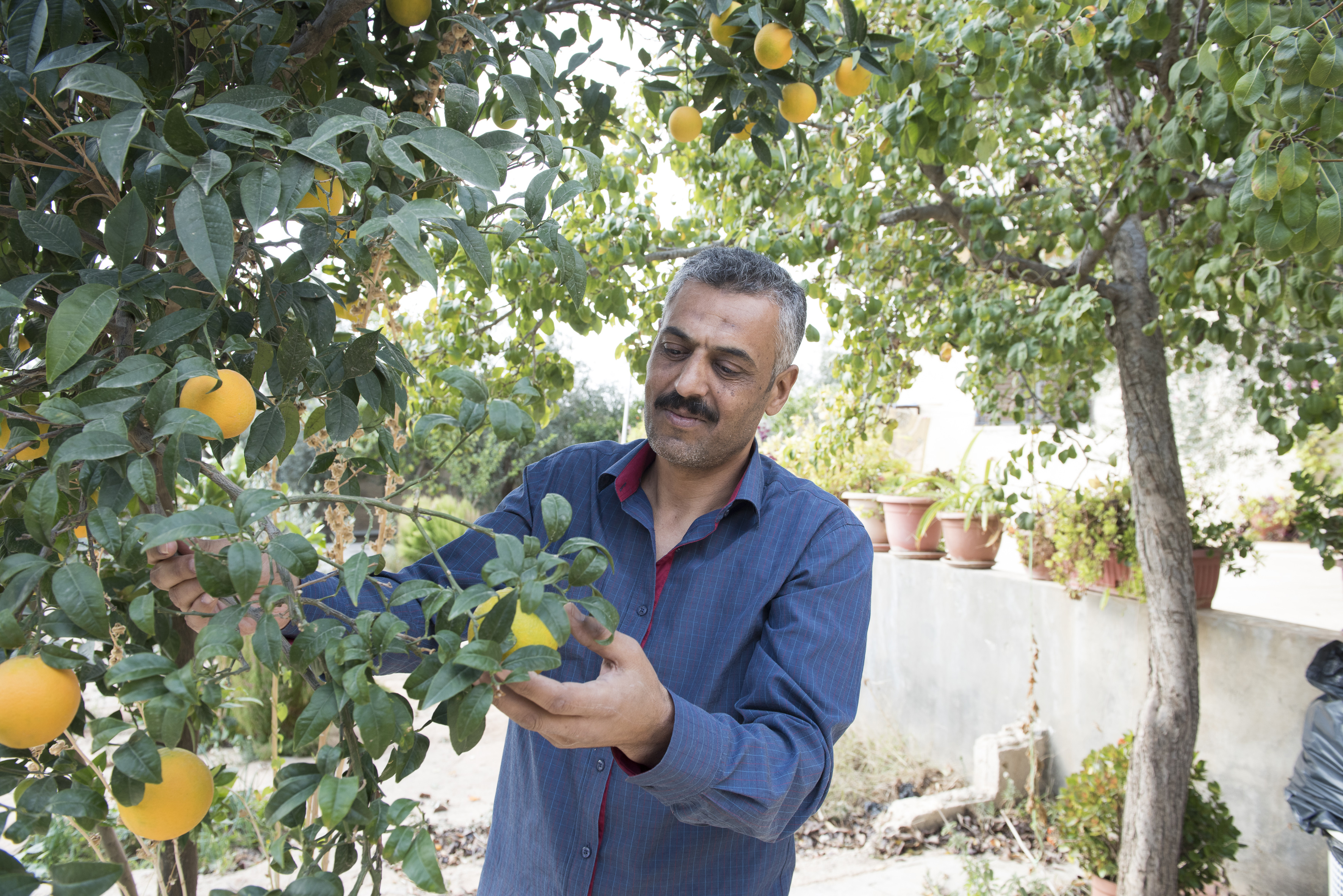Hajar
the grandmother
Hajar Musleh with her grandchildren in Jordan. Because her family can barely afford to pay their electricity bills, the Syrian refugee struggles to bathe and keep her grandchildren warm. ©UNHCR/Hannah Maule-ffinch
When she had to flee Syria in 2012, Hajar lost everything she’d ever known – except her family. She counts her five sons, one daughter and four grandchildren as her greatest treasures.
“All of my sons have gotten married since we came to Jordan,” she says, smiling. “Those are my happiest memories here.”
Those pleasant moments are in stark contrast to the circumstances that forced her family to leave their hometown of Aleppo.
“We had a well-built house in Syria, with room for our entire family,” she explains. “But now it’s gone.”
Traveling on foot and by car, the family first arrived at Za’atari refugee camp, where they stayed before moving to Irbid. Over the past several years, they’ve moved frequently, struggling to find a safe and affordable apartment.
Three years ago, they moved to their current apartment. They’re the only Syrian family in a building where the top floors are only semi-finished. The windows are extremely drafty, letting in winter chills that force the family to bundle up, even indoors.
For Hajar, energy – especially heating – is a major worry.
“We have an electric water heater, but we try not to use it, because it raises our bill,” she explains. “We try to heat our apartment with kerosene to keep the bills down.”
“We have to heat the water on the stove for the children’s baths, which is hard, because there are four of them,” she continues.
Most of the family’s monthly cash comes from her sons, who work in construction. However, jobs are infrequent and unpredictable.
Hajar considers what more affordable, reliable energy would mean for her family.
“It would help us pay for more things: transportation to the market and to school, food and necessities for the babies.”




